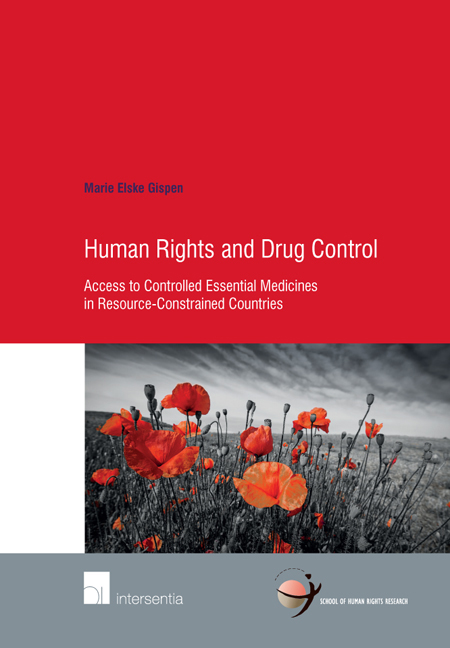 Human Rights and Drug Control
Human Rights and Drug Control Book contents
- Frontmatter
- Acknowledgements
- Contents
- List of Abbreviations
- Table of Instruments
- Table of Cases
- List of Figures and Tables
- Part 1 Concept and Problem
- Part 2 Normative Framework
- Part 3 Country Studies
- Chapter 5 Bridging Theory and Practice: Introduction to the Country Studies
- Chapter 6 Country Study I: Uganda
- Chapter 7 Country Study II: Latvia
- Part 4 Conclusions and Recommendations
- Appendix I Interview Protocol Uganda
- Appendix II Interview Protocol Latvia
- Samenvatting (Dutch summary)
- Selected Bibliography
- Index by Paragraph
- Curriculum Vitae
- School of Human Rights Research Series
Chapter 7 - Country Study II: Latvia
from Part 3 - Country Studies
Published online by Cambridge University Press: 27 September 2018
- Frontmatter
- Acknowledgements
- Contents
- List of Abbreviations
- Table of Instruments
- Table of Cases
- List of Figures and Tables
- Part 1 Concept and Problem
- Part 2 Normative Framework
- Part 3 Country Studies
- Chapter 5 Bridging Theory and Practice: Introduction to the Country Studies
- Chapter 6 Country Study I: Uganda
- Chapter 7 Country Study II: Latvia
- Part 4 Conclusions and Recommendations
- Appendix I Interview Protocol Uganda
- Appendix II Interview Protocol Latvia
- Samenvatting (Dutch summary)
- Selected Bibliography
- Index by Paragraph
- Curriculum Vitae
- School of Human Rights Research Series
Summary
Introduction
This chapter investigates whether Latvia is able to implement the administrative and procedural requirements of the 1961 Single Convention on Narcotic Drugs in a human rights compliant manner. Similarly to Chapter 6, it deals more specifically with understanding the issues, if any exist, in implementing a special administration, data collection and management, and specific trade and distribution requirements in relation to the Availability, Accessibility, Acceptability, and Quality (AAAQ) standard of healthcare. As indicated in Chapter 5, the objective of the empirical analysis is to explore the interplay of the human rights and drug-control frameworks in practice. In doing so, this chapter aims to reveal the complexities and gaps that may be found in the international drug-control system in terms of human rights compliant medicine provision. As was also highlighted in Chapter 5, Latvia is a high-income country with a seriously constrained health system. As a result, the population is faced with the repercussions of inadequate access to opioid analgesics, including morphine for pain treatment.
This chapter first elaborates briefly on the research design and methodology introduced in Chapter 5 and presents an anonymized chart that outlines all the respondents that participated in the study (Section 7.2). Next, the chapter provides background information on Latvia so as to ensure that the reader is able to contextualize the findings (Section 7.3). Focusing on the real-life experience of those working with the specific drug-control requirements, this chapter finally discusses the experiences of and context in which the provision of pain-control medicine takes place in Latvia (Section 7.4).
Design and methodology
As for the country study conducted in Uganda, the question central to the empirical analysis is:
How, if at all, can States prioritize, promote, and uphold the AAAQ standard of healthcare of medicines in accordance with human rights theory and law, whilst implementing the administrative and procedural requirements of the international drug-control system?
Answering such a question presupposes twofold insight. First, one needs to generate an in-depth understanding of the context in which the administrative and procedural requirements of the international drug-control system come into play in Latvia. This requires one to understand Latvia's ‘regulatory chain’ of pain-control medicines, its institutional and regulatory structure, and the experiences of those working within the system.
- Type
- Chapter
- Information
- Human Rights and Drug ControlAccess to Controlled Essential Medicines in Resource-Constrained Countries, pp. 247 - 288Publisher: IntersentiaPrint publication year: 2017


